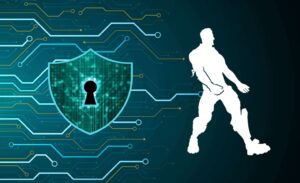Cybersecurity is one of the most talked-about fields today. But if you’re wondering, is cybersecurity hard, you’re not alone. Many people find it challenging due to the technical skills, fast-paced changes, and high responsibility involved.
This guide breaks down five common challenges in cybersecurity and shows you how to tackle them. Whether you’re considering a career or just curious, understanding these hurdles will help you make smarter decisions and stay motivated.
The Technical Complexity of Cybersecurity
Cybersecurity requires a solid grasp of various technical skills. You need to understand how networks operate, how software works, and how attackers exploit vulnerabilities.
For beginners, this can feel overwhelming. Concepts like encryption, firewalls, and intrusion detection aren’t always easy to grasp at first glance.
But here’s the good news: building foundational knowledge step by step makes the complexity manageable. Start with basics like computer networks and operating systems, then gradually explore security tools and protocols.
Taking one topic at a time and practicing regularly will build your confidence. The technical side of cybersecurity may be hard, but it’s far from impossible with the right approach.
The Fast-Paced and Ever-Changing Nature of Cyber Threats
One reason many ask, ‘Is cybersecurity hard to learn?’ is due to the constant evolution of cyber threats. Hackers develop new techniques daily, and security professionals must keep up with these changes to stay ahead.
This fast pace means you can never stop learning. What’s cutting-edge today might be outdated next year. It can feel exhausting to keep up, especially alongside work or study.
The key to managing this challenge is building a habit of continuous learning. Follow trusted blogs, attend webinars, and participate in cybersecurity communities. Tools like newsletters and podcasts can help you stay informed without overloaded.
Also, focus on learning principles rather than just tools. Understanding the ‘why’ behind attacks prepares you to adapt as technology evolves.
Navigating Certifications and Educational Paths
Certifications play a significant role in cybersecurity careers, but determining which ones to pursue can be confusing. This is another reason people wonder, How hard is cybersecurity.
There’s a wide range from entry-level certificates like CompTIA Security+ to advanced ones like CISSP. Each has its own focus and prerequisites. Choosing the right path without guidance can be overwhelming.
To overcome this, start by identifying your goals. Are you interested in network security, ethical hacking, or management? Then, research which certifications align with your interests.
Break your learning into manageable chunks. Don’t rush to get all certifications at once. Instead, focus on one at a time and gain practical experience alongside.
Planning and persistence make certification paths easier to handle.
Developing the Right Mindset and Soft Skills
Cybersecurity isn’t just about technical know-how. The right mindset and soft skills play a huge role in mastering the field.
Problem-solving is essential. You’ll often face complex puzzles and need to think creatively to find solutions. Attention to detail helps catch subtle signs of threats before they escalate.
Being adaptable matters too. Cyber threats change quickly, and so do security tools. Staying flexible and open to learning new approaches keeps you effective.
Many also feel pressure because cybersecurity carries a high responsibility. Mistakes can have serious consequences. Managing stress and staying calm under pressure are skills that grow with experience.
Fostering these soft skills can make cybersecurity feel less daunting and more rewarding.
Overcoming Skill Gaps and Finding Support
Starting out in cybersecurity, many feel they lack experience or knowledge. This can make the field seem intimidating or even impossible.
The best way to overcome skill gaps is through hands-on practice. Virtual labs, capture-the-flag challenges, and internships offer real-world experience that textbooks can’t provide.
Joining cybersecurity communities and forums connects you with mentors and peers who share advice and encouragement. Having someone to guide you makes learning faster and less isolating.
Remember, no one starts as an expert. Everyone faces gaps at the beginning. Persistence and using available resources will help you close those gaps over time.
Is Cybersecurity Easy to Learn?

While cybersecurity presents its challenges, it’s essential to dispel the myth that it’s impossible or reserved for “tech geniuses.” Research shows that with structured learning and dedication, many people successfully enter the field even without prior experience.
A 2023 survey by (ISC)² revealed that 70% of cybersecurity professionals started their careers without formal education in the field but gained skills through certifications, self-study, and hands-on practice. This proves that cybersecurity is accessible with the right approach.
The key lies in breaking down complex topics into manageable parts and focusing on continuous learning and improvement. Online platforms like Coursera, Udemy, and free resources from cybersecurity organizations offer beginner-friendly courses.
Moreover, cybersecurity involves a mix of technical skills and critical thinking, so if you enjoy problem-solving and are willing to invest time, it becomes much easier to grasp.
In summary, while cybersecurity isn’t “easy” in the casual sense, it is learnable. The effort you put in directly impacts how quickly and smoothly you progress.
Career Outlook: How Much Do Cybersecurity Professionals Make?
One common question is, how much do cybersecurity professionals make? The field offers competitive salaries that reflect the growing demand for skilled experts.
According to the U.S. Bureau of Labor Statistics, the median annual wage for information security analysts was about $103,590 in 2023. Entry-level positions typically start at a lower level but can quickly advance with experience and certifications.
The global cybersecurity market is expected to grow at an annual rate of over 10% through 2030, creating a strong job market with more opportunities than qualified professionals. This shortage means skilled workers often have bargaining power for better pay and benefits.
Keep in mind, salaries vary based on location, role, and expertise. Specialized roles like penetration testers or security architects typically earn more.
This promising outlook shows that overcoming the challenges of learning cybersecurity can lead to a rewarding and financially stable career.
Your Path Forward: Practical Tips to Get Started
Starting your cybersecurity journey may seem daunting, but with the right steps, you can make steady progress.
- Set Clear Goals: Decide which area interests you: network security, ethical hacking, or compliance, and focus your learning there.
- Start with Basics: Build a strong foundation in computer networks, operating systems, and basic security principles.
- Use Quality Resources: Leverage reputable online courses, tutorials, and books. Platforms like Coursera, Cybrary, and official certification bodies offer excellent materials.
- Practice Regularly: Use virtual labs and simulation platforms to gain hands-on experience. Practical work solidifies theory.
- Join Communities: Participate in forums, local meetups, or online groups. Networking helps you stay motivated and informed.
- Plan Certifications Wisely: Begin with entry-level certificates like CompTIA Security+ before advancing to specialized ones.
- Stay Curious and Persistent: Cybersecurity evolves rapidly. A mindset of lifelong learning is essential.
Your Cybersecurity Journey Starts Now
Cybersecurity may seem hard at first, but every expert once stood where you are today, facing challenges, learning, and growing. By understanding these common hurdles and using the strategies shared here, you’re already taking the most important step forward.
Remember, this field rewards curiosity, persistence, and adaptability. Your effort builds not only a career but a critical shield that protects people and organizations worldwide.
So, dive in with confidence. Your journey into cybersecurity starts now, and the possibilities are endless.








